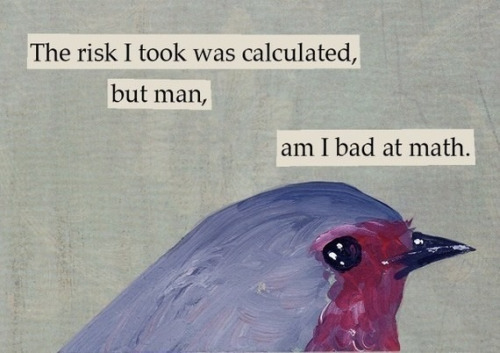One Day Joseph, A Masai Warrior, Who Was Walking Along One Of These Hot, Dirty African Roads, Met Someone
One day Joseph, a Masai warrior, who was walking along one of these hot, dirty African roads, met someone who shared the gospel of Jesus Christ with him, and then and there, he accepted Jesus as Lord and Savior. The power of the spirit began transforming his life, and he was filled with such excitement and joy that the first thing he wanted to do was return to his own village and there share the good news to the members of his own local tribe. Joseph began going from door to door telling everyone he met about the cross, suffering, and the salvation that it offered, expecting to see their faces light up the way his had. And to his amazement, the villagers not only didn’t care, they became violent. The men of the village seized him, held him to the ground while the women beat him with strands of barbed wire. He was dragged from the village and left to die alone in the bush. Joseph somehow managed to crawl to a water hole and there, after days of passing in and out of consciousness, found the strength to get up. He wondered about the hostile reception that he had received from people he had known all his life. He decided he must have said something wrong or left something out from the story of Jesus. After rehearsing the message that he gave at first, he decided to go back and share this message again. Joseph limped into the circle of huts and began to proclaim Jesus. “He died for you so that you might find forgiveness and come to know the living God,” he pleaded. Again he was grabbed by the men of the village and held while the women beat him, reopening wounds that had just begun to heal. Once more, they dragged him unconscious from the village and left him to die. To have survived the first beating was truly remarkable. To live through the second was a miracle. Again, days later, Joseph awoke in the wilderness, bruised, scarred, determined to go back. He returned to the small village, and this time, they attacked him before he had a chance to open his mouth. As they flogged him for the third and possibly the last time, he again spoke to them of Jesus Christ, the Lord. Before he passed out, the last thing he saw was the women who were beating him began to weep. This time, he awoke in his own bed. The ones who had so severely beaten him were now trying to save his life and nurse him back to health. And the entire village came to Christ.
How Our Suffering Glorifies the Greatness of the Grace of God by John Piper (via worshipgifs)
More Posts from Bernatk and Others
When am I ready?
We work very hard for things we want and for others that we don't. But it's about all right. However, mostly our efforts turn out to be fruitless. Why is this? Why isn't my book published yet? Why am I not married?
Most often we question the methods and the degree of our commitment but other times simply accept failure. None of this and at the same time all of this is right. How can that be?
Firstly, we can never work too hard. There's always a bit more we could do. Yes, even when we feel we've done our best. It is constantly possible to push a little harder, to get somewhat better. And there are times, when our work needs polishing. It's extremely hard to admit, when what we think we've worked for with all our might, cries out for being corrected. It's truly damn difficult to say, that it isn't that good after all.
Secondly, we easily get obsessed with a wide range of variety of things, from what we ought to keep ourselves far. And then it's inevitable, that we lay down our weapons and armours, and whisper lowly: I give up. Then we become free to do what can work for us.
But no matter what we do and how we do it. Sometimes we are destined to achieve success at certain fields, still, we struggle and yet get nowhere. That's because we might not be quite ready. The Oracle tells Neo in the Matrix: Sorry, kid. You got the gift, but it looks like you're waiting for something. And sometimes, very rarely, it looks like we're all waiting for something, just don't know what. We think we'll know when we see it. But it's not something we can see or something that's basically external. No. Just like in Neo's case, we've got to start believing. Faith is the last barrier, that separates us from entering the promise land.
Beliefs
"Doubt your doubts and believe your beliefs" sings Jon Foreman. This is a great advice to us, modern-day people. We let ourselves be shaken by nearly everything: science, new religions, even the opinions that aren't identical to ours. Nowadays people are lacking confidence and mostly confidence in what they believe. In what WE believe.
On the contrary, when we don't believe in something, we mostly have absolutely no idea what that thing's about. We don't read the literature of the religions we don't agree with, so this means we are very far away from being given the right to disagree, since we aren't informed. When someone denies evolution, or science, they don't have a physics, chemistry or biology degree, they just are willingly ignorant.
At the end of the day, we don't have strong faith or strong doubt, but even when we do, it's based on nothing. But why is that? It's because we can't listen to all debates, read every book, perform each experiments to support our beliefs or doubts. In fact it would be impossible, since humanity hasn't yet answered every questions, we are too young a specie to know it all. This means that every faith and doubt will be open for discussion for an exceedingly long time.
Opinions and beliefs make us, people, so diverse and it's wonderful. However, it's quite trivial that in the end only one faith will prevail and on a distant-enough day we will know who was right because every single belief system, no matter if they say it differently, excludes every other. You can try and model religions as different paths to the same place but it doesn't work. They're contradicting each other. If one's true, the other is inevitably false.
I know there have been countless flame wars generated by religious differences. You might even bring up the crusades as a fine example, however, the crusades are so much opposed to how christianity is defined that the "holy crusades" were acts of the least christian roots. Just saying... But where am I going with this? Fighting over who's right or who's wrong is folly. Think about it, truth will prevail. Forcing your ideals on others will never produce new believers, only averse souls. I, for one, am a believer of Jesus Christ. And yes, I'm convinced that I'm right about what I have faith in. I stongly think that everyone should believe in what I do, STILL, my onlytool to achieve this is live my life by the principles I believe in. You have the choice to disagree. I'm sad if you do but it's completely up to you.
Cheers :)
What is Brendan Eich?
Nearly everyone has heard of how Brendan Eich, Mozilla's former CEO, stepped down because of a scandal around his contribution to an organization that sought to ban gay marriage. Conservatives and liberals have been engaging in heated debates on this matter and this post isn't to determine who's right or who's wrong. What it is meant to discover is the phenomenon itself.
The interpretations I've encountered are:
#1: Opposing liberals meant that Eich made a strategically wrong step. Admitting to failure, he decided to step down.
#2: His personal standpoint went against the very mission of Mozilla, which was not creating profit but spreading openness, freedom and such with a diverse community.
These arguments. however, don't directly lead to the actual consequences. The reasons why these are misleading, inaccurate arguments are:
#1: Even though in politics and everyday life we all try to bring our own views to victory, a liberal couldn't oppose Eich. A liberal answer to his donation would have been nothing but total respect. That is because such a reply would be in favor of diversity, although all-inclusive includes the ones, who don't agree even with inclusiveness. There are many forms of liberalism but none of them would scold Eich's contribution to that organization. In summary, he couldn't oppose liberalism in a way that would lead liberalism away.
#2: Brendan Eich made his contribution as an independent individual, back in 2008. Now he spoke against everything that could oppose the gay society. He realized that holding up such views would definitely infringe Mozilla's mission. Still, his altered position promoted diversity. One could say that he is responsible for the collectivity of his actions but he actually faced this past act of his, trying to make it fit to the company's mission. Opposing Eich would actually mean failing this mission because at least toward him they close their imaginary gates and would exclude him.
What I'm trying to articulate is that there cannot be any idealistic reason to support his stepping down. On what grounds do many support it then?
(Before making my thesis, I want to note, once more that I'm not saying Eich was right or wrong when donating to the anti-gay organization, neither the same about his stepping down. Now back to the point...)
What this case tells us is that though people sympathize with liberalism or communitarianism or anything else, most of them don't actually belong to them. Eich's opposition (the kind, which doesn't only have a different view but instead is actively against him/agrees with his resignation) doesn't consist of liberals or any other group of idealists, instead of people, who may sympathize with them but they themselves are essentially different.
Carl Schmitt wrote that the main function of politics is to distinguish between friend and enemy. Schmitt wasn't a liberal--more importantly he wasn't an idealist but a realist.
Eich's opposition makes an enemy out of him. They called on Mozilla users to uninstall their browser and stop using their products. They took up a fight against him with smart methods, ones, which were enough to make the continuation of his being a CEO impossible.
It's not a question whether or not Eich was right but whether or not he is a friend to us. Not a liberal community opposed him but rather a realist one that, at best, only serves a liberal community. They can sympathize with liberals but they can't be them.
The reason why I thought this whole matter important to see is that it's not the age of idealism any more. Of course I can't deal an absolute in regards of this because the political sphere is very mixed and while there are realists in it, we can just as easily name another huge group of idealists. My ultimate point is that this presently emerging trend is, contrary to popular statements, not liberalism, or any other form of idealism but realism instead, where one can't rely on rights or morals, only on the inclinations of those, possessing power.
Packing
Fate now come, Dis App was ready in his dispositions and intentions. But a journey, he understood, depends on many things.
Sustenance and garments. Some money for emergencies and some for leisure.
And even the common, directionless man will tell you that when fate calls you cannot rely on the promise of happy returns. But Dis App, being strong and resolute, did not also anticipate failure.
Should he never return, there would still be a future for him. In sweet Far Away.
What should he bring into his life, finally starting? Probably not cheap furniture or utensils. But not even things so far his greatest treasures. Fate can’t offer less than the gray past. In fact it can only bring him to possess more.
But, Dis App thought, maybe a watch beside the essentials. Yes, it was a birthday present. And it is perhaps of no brand and the gilding is fake but the leather smells genuine. It is the most elegant thing of the so far.
And maybe he doesn’t have to absolutely kill himself.

-
 bigtomahawk-blog1 reblogged this · 7 years ago
bigtomahawk-blog1 reblogged this · 7 years ago -
 juxtudruhh reblogged this · 7 years ago
juxtudruhh reblogged this · 7 years ago -
 cruger2984 reblogged this · 7 years ago
cruger2984 reblogged this · 7 years ago -
 tyzymucusisu254685-blog liked this · 8 years ago
tyzymucusisu254685-blog liked this · 8 years ago -
 he-createdallbeautiful reblogged this · 8 years ago
he-createdallbeautiful reblogged this · 8 years ago -
 she-moved-on reblogged this · 9 years ago
she-moved-on reblogged this · 9 years ago -
 oceanstarskies liked this · 9 years ago
oceanstarskies liked this · 9 years ago -
 lovekeric12 liked this · 9 years ago
lovekeric12 liked this · 9 years ago -
 sinti-wolf reblogged this · 9 years ago
sinti-wolf reblogged this · 9 years ago -
 alliearlene liked this · 9 years ago
alliearlene liked this · 9 years ago -
 iknowthereisstillmore liked this · 9 years ago
iknowthereisstillmore liked this · 9 years ago -
 juliannachristina liked this · 9 years ago
juliannachristina liked this · 9 years ago -
 donottelltheelf reblogged this · 9 years ago
donottelltheelf reblogged this · 9 years ago -
 donottelltheelf liked this · 9 years ago
donottelltheelf liked this · 9 years ago -
 caramelcoffeeboba reblogged this · 9 years ago
caramelcoffeeboba reblogged this · 9 years ago -
 thislovemakesmefearless3 reblogged this · 9 years ago
thislovemakesmefearless3 reblogged this · 9 years ago -
 free2lol reblogged this · 9 years ago
free2lol reblogged this · 9 years ago -
 stupidityryl liked this · 9 years ago
stupidityryl liked this · 9 years ago -
 brotha-wzrd reblogged this · 9 years ago
brotha-wzrd reblogged this · 9 years ago -
 terrallmary liked this · 9 years ago
terrallmary liked this · 9 years ago -
 instepwithchrist reblogged this · 9 years ago
instepwithchrist reblogged this · 9 years ago -
 trumpet-sounding-blog reblogged this · 9 years ago
trumpet-sounding-blog reblogged this · 9 years ago -
 poetic-updo reblogged this · 9 years ago
poetic-updo reblogged this · 9 years ago -
 bookrebelwordwarrior liked this · 9 years ago
bookrebelwordwarrior liked this · 9 years ago -
 rolipolinicoli liked this · 9 years ago
rolipolinicoli liked this · 9 years ago -
 alfredwashere liked this · 9 years ago
alfredwashere liked this · 9 years ago -
 thereisomethingelse liked this · 9 years ago
thereisomethingelse liked this · 9 years ago -
 ceeceereesee-blog reblogged this · 9 years ago
ceeceereesee-blog reblogged this · 9 years ago -
 summernighttts liked this · 9 years ago
summernighttts liked this · 9 years ago -
 adriantheinn8 liked this · 9 years ago
adriantheinn8 liked this · 9 years ago -
 themakingsofalovergirl liked this · 9 years ago
themakingsofalovergirl liked this · 9 years ago -
 clone-mom reblogged this · 9 years ago
clone-mom reblogged this · 9 years ago -
 clone-mom liked this · 9 years ago
clone-mom liked this · 9 years ago -
 shewaslookingtothesky reblogged this · 9 years ago
shewaslookingtothesky reblogged this · 9 years ago -
 musicalme7 liked this · 9 years ago
musicalme7 liked this · 9 years ago -
 likeforrealreally reblogged this · 9 years ago
likeforrealreally reblogged this · 9 years ago
I mostly write. Read at your leisure but remember that my posts are usually produced half-asleep and if you confront me for anything that came from me I will be surprisingly fierce and unforeseeably collected. Although I hope we will agree and you will have a good time.
213 posts










